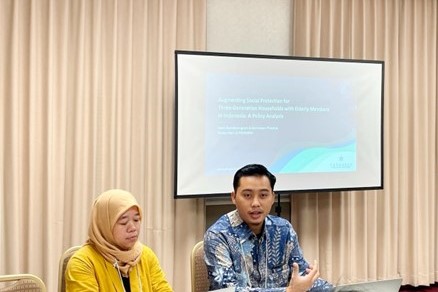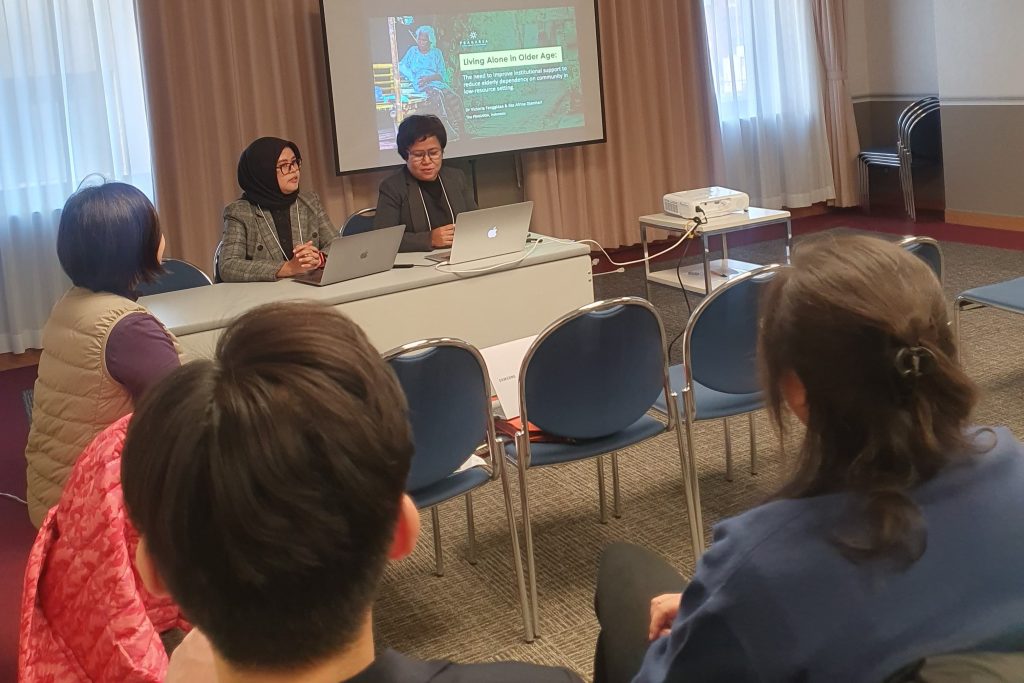(CPV) – With ASEAN suffering from unprecedented economic inequality, the region as a collective has struggled to invest sufficiently in public goods due to a lack of tax revenue, said a report launched on June 25th 2020.
The report “Towards Sustainable Tax Policies in the ASEAN Region” proposes how ASEAN can respond at the highest level politically to cohesively improve policies and actions for increasing domestic revenue to fund public goods like health and education. It was launched in Hanoi today, on the eve of the ASEAN’s 36th semi-annual summit by Oxfam, Tax and Fiscal Justice Asia (TAFJA), The PRAKARSA, and Vietnam Tax Justice Alliance (VATJ).
Raising revenues of nations in the region is critical to overcoming interrelated challenges like high levels of poverty, widening inequality, and climate crisis – while recovering from the COVID-19 crisis.

Photo: VEPR
The region had 73.57 million (11%) out of its 653.9 million people struggling in poverty well before COVID-19, and this number may go up rapidly with economic activities slowing down, with recovery a long way away. The pandemic has made survival an uphill struggle for daily wage workers, small-time farmers, women workers in precarious jobs, and others left behind.
The governments are handicapped in spending on public wellbeing, and all ASEAN countries will likely face budget deficits in 2020 at an average of 4.2% of GDP. Some countries are also heavily indebted. With escalating spending on battling the pandemic, its economic fallout, and falling tax revenues due to crippled productivity, the deficits and debt are likely to keep mounting.
“Now, more than ever, ASEAN and the member states must collaborate and agree upon a common minimum standard for corporate tax incentives in the region. They need to prevent harmful tax practices that drain essential public revenue and create self-destructive competition among members.
“These tax incentives have helped big corporations to prosper at the expense of Asian people. This must come to an end. ASEAN must blacklist – draw a line – and say no to harmful tax incentives which drastically deplete much needed national revenues. If any incentives are to be allowed, they must only be meaningful investments that benefit the people, with no exceptions,” said Dr. Nguyen Duc Thanh, Chief Advisor, Vietnam Institute for Economics and Policy Research (VEPR) of VATJ.
Ah Maftuchan, Co-coordinator of Tax and Fiscal Justice Asia (TAFJA) added, “ASEAN member states need to collaborate and discard “beggar-thy-neighbor” tax policies, including “race-to-the-bottom” tax incentives that translate into lost revenues which have left poorer countries and people struggling to make ends meet.”
The report, building upon comparative experiences of other regions and exploring case studies from ASEAN, makes three recommendations. In addition to setting up black and whitelists of tax incentives clarifying harmful taxation, the ASEAN needs to agree on a common minimum tax standard. Finally, ASEAN needs to agree on rules for the good governance of tax incentives.
In ASEAN, revenue collection levels as a ratio to GDP remain very low in comparison to other regions. In 2018, the ASEAN average was 19.1 percent of GDP which is less than half of that of the Organization for Economic Co-operation and Development (OECD) countries. It is also lower than the average of Latin America and the Caribbean.
“In the spirit of equality and partnership, ASEAN member states need to collaborate to put in place fairer and more sustainable tax systems that will allow each state to collect revenues sufficient for economic, cultural, and social progress.
“As a cohesive and responsive community, the member states can then mobilize more resources for essential services such as health and education and other public goods thus making a difference in the lives of millions struggling to overcome the pandemic and poverty,” said Tony Salvador, Legal Researcher at Third World Network, a TAFJA Coordinating Committee Member./.Khac Kien
Soure: Dangcongsan



